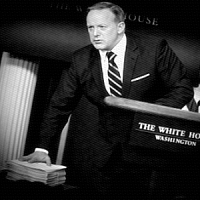#trumpswindle | #WhatTheyVotedFor
 This is the sort of question that might well remain beyond any definitive answer:
This is the sort of question that might well remain beyond any definitive answer:
President Donald Trump twice gave James Comey an alibi for why a salacious report about the 2013 Miss Universe pageant in Moscow couldn’t be true: He never even spent the night in Russia during that trip, Trump told the former FBI director, according to Comey’s memos about the conversations.
Yet the broad timeline of Trump’s stay, stretching from Friday, Nov. 8, 2013, through the following Sunday morning, has been widely reported. And it’s substantiated by social media posts that show he slept in Moscow the night before the Miss Universe contest.
Now, flight records obtained by Bloomberg provide fresh details. Combined with existing accounts and Trump’s own social-media posts, they capture two days that, nearly five years later, loom large in the controversy engulfing the White House and at the heart of the Comey memos, which the Justice Department turned over last week to Congress.
(Silver)
In all of history, given every stupid gaffe and inadequate excuse we might ever hear from politicians, what part of this was worth lying about, and by what measure would anyone expect to get away with it? The social media aspect is itself ridiculously damning. That is to say, it is perhaps possible to imagine a circumstance whereby someone like Donald Trump might not even bother to think about whether or not flight records can be ultimately hidden, but, you know, posing for promotional pictures and then saying one was not actually there is one of the tougher sells. True, Trump voters will generally be okay with it because whatever Trump says is #WhatTheyVotedFor, but for the rest of society, regardless of any other mystery about the #TrumpRussia debacle, this one just shines.
____________________
Image note: Donald Trump attends the Miss Universe 2013 competition at Crocus City Hall in Moscow, Russia, 9 November 2013. (Photo: Alexander Aleshkin/Epsilon/Getty Images)
Silver, Vernon. “Flight Records Illuminate Mystery of Trump’s Moscow Nights”. Bloomberg. 23 April 2018.










